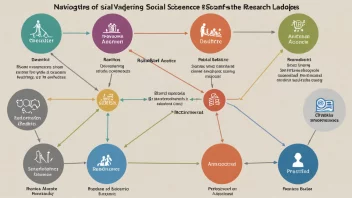In this article, readers will learn about how funding plays a crucial role in driving scientific discovery. By exploring the various types of funding available, the process of securing grants, and the impact of funding on research outcomes, we will provide a comprehensive understanding of the vital relationship between financial support and scientific progress.
Step 1: Understand the Types of Funding Available
Before diving into the research world, it's essential to know what types of funding are available. Various sources provide financial support for scientific research, including:
- Government Grants: National and local governments often allocate funds for research initiatives, focusing on areas that align with public interests.
- Private Foundations: Many non-profit organizations and philanthropic foundations offer grants to support specific research projects or fields.
- Corporate Sponsorship: Companies may fund research that aligns with their business goals, often leading to potential product development.
- Crowdfunding: In recent years, researchers have turned to platforms like Kickstarter or GoFundMe to raise money directly from the public.
Step 2: Identify Potential Funding Sources
Once you understand the types of funding, the next step is to identify potential sources for your specific research project. Start by:
- Conducting an online search for funding databases that list grant opportunities.
- Networking with colleagues and attending conferences to learn about new funding opportunities.
- Reviewing academic journals for articles that mention funding sources.
- Contacting university research offices, as they often have resources dedicated to helping researchers find funding.
Step 3: Craft a Compelling Proposal
A well-written proposal is essential to securing funding. This document should clearly outline your research objectives, methodology, and expected outcomes. To create a compelling proposal:
- Clearly Define Your Research Question: Make sure your proposal addresses a significant problem or gap in knowledge.
- Outline Your Methodology: Describe how you plan to conduct your research, including data collection and analysis methods.
- Highlight the Impact: Explain how your research will contribute to the field and society as a whole.
- Follow Guidelines: Ensure you adhere to any specific guidelines provided by the funding source.
Step 4: Submit Your Proposal
After crafting your proposal, it's time to submit it. This process may vary by funding source, but generally includes the following steps:
- Review your proposal for accuracy and completeness.
- Ensure that all required documents are included, such as CVs, letters of support, and budgets.
- Submit your proposal before the deadline, following the submission guidelines provided.
Step 5: Manage Your Funding
If you are awarded funding, managing it effectively is crucial to the success of your research. Here are some tips:
- Keep Detailed Records: Track all expenses and maintain clear documentation to report back to funders.
- Communicate with Funders: Regularly update them on your progress, challenges, and any changes to your project.
- Engage with Stakeholders: Share your findings with your community and stakeholders involved in your research.
Step 6: Evaluate and Report Outcomes
Upon completing your research, it's essential to evaluate and report your findings. This will not only fulfill your funding obligations but also contribute to the broader scientific community. Consider the following steps:
- Analyze your results and determine whether you achieved your research objectives.
- Prepare a final report for your funders and consider publishing your findings in academic journals.
- Present your research at conferences and share your results with the community.
In summary, securing funding for scientific research is a multi-step process that involves understanding funding types, identifying sources, crafting strong proposals, managing funds effectively, and reporting outcomes. By following these steps, researchers can significantly enhance their chances of advancing scientific discovery and contributing valuable knowledge to their fields.
Remember, persistence is key in the world of research funding. Keep refining your proposals and building your network, and you'll increase your chances of success.






